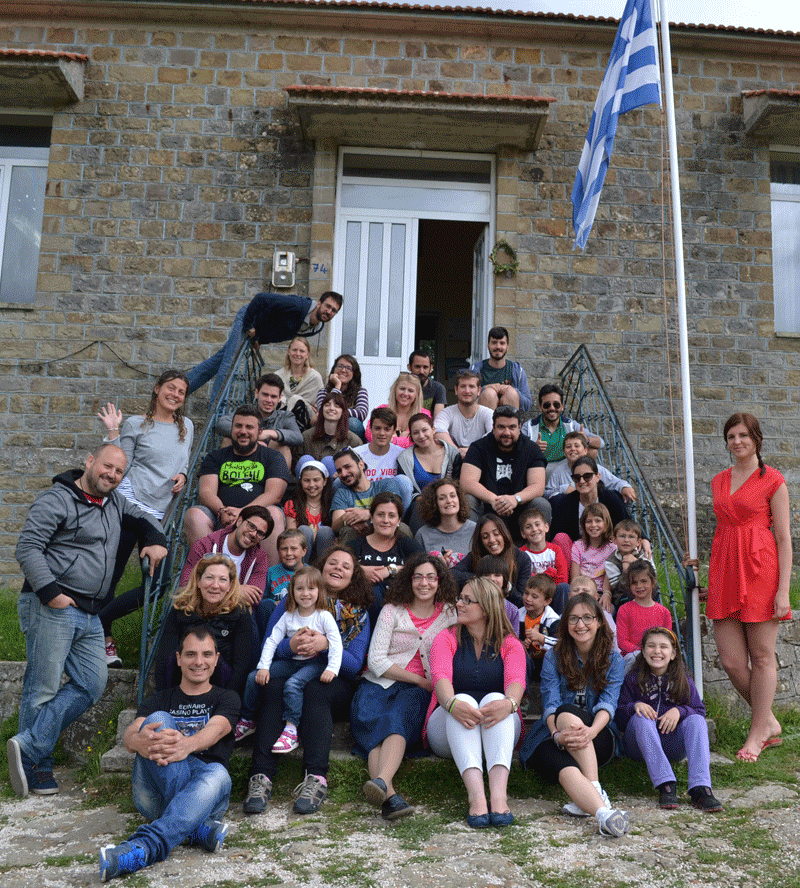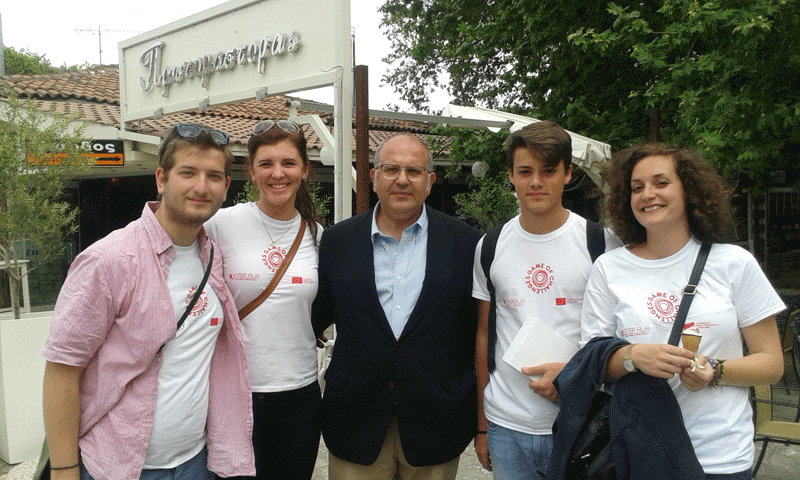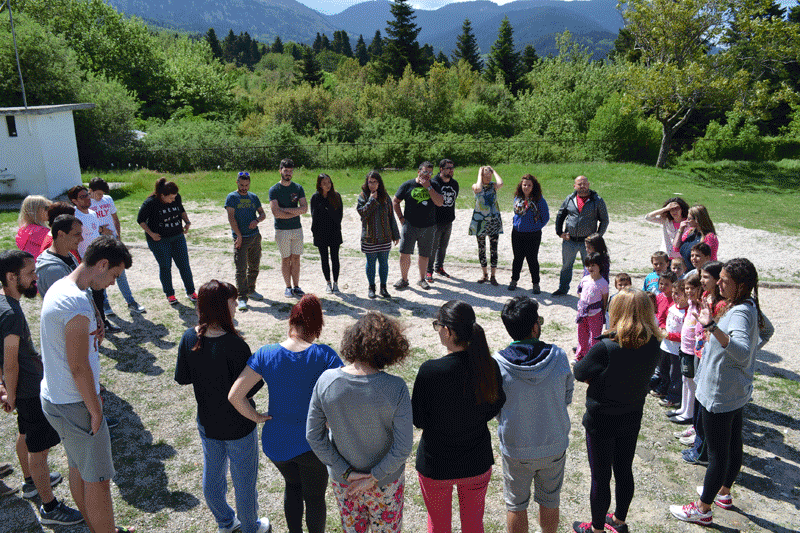
Training course on Crisis, Community and Learning organised by Inter Alia
“Game of Challenges” resulted from our continuous concern and questioning about the future of Europe. In order for Europeans to overcome the current crisis united, there is a series of conceptual, social, institutional and educational issues that need to be addressed first at the level of attitudes and then at the level of structures and institutions.

The main objectives of Game of Challenges were to:
– Cultivate participants’ ability to confront and utilize conditions of crisis on all levels;
– Strengthen the European sense of belonging of participants and the local community;
– Promote social participation as an entertaining and fruitful activity and mobilize local youths;
– Combine formal and non-formal education in the quest for high quality learning.
The main actions were a Training Course that took place in the mountainous, remote village of Skoulikaria (200 citizens) in Epirus and an Organizations’ Expo which was held in the nearby city of Arta on the fourth day of the training. The TC duration was 8 days and involved 30 participants from 4 EU countries (Greeece, Italy, Sweden, Estonia) who represented youth organisations and and local authorities, as:
www.cesie.org
www.asapeurope.eu/it/
www.or.ee and
Ong uch Aktiv.
The participants of GoC were youth workers, youth leaders, trainers and youngsters aiming to work in the field of youth.

The TC was based on non-formal education (experiential learning, group and peer learning, personal development, Theater of the Oppressed, simulation games, council of stories, team projects on the occasion of Europe Day, work with elementary school and kindergarten students, debate) and informal learning activities (dance festival and intercultural dinner with local people, educational excursion and guided tour to the city of Arta).
The GoC had a strong impact on participants and the local community alike. The activity plan challenged the former to reconsider their certainties as individuals, community members, learners and educators. This process cultivated understanding and widened their perceptions on the topics at hand. The learning outcomes of the project were manifold and dynamic. The project particularly focused on social and civic competences, learning to learn, sense of initiative/entrepreneurship and cultural awareness and expression. In those areas, participants acquired competences such as new knowledge and transversal skills while certain attitudes related to sustainable collective action – such as empathy, respect, patience – were promoted.

The local community had a unique opportunity to meet and interact with an international audience. The presence of the group in the daily life of the village improved their psychology and eagerness to contribute and participate. Younger individuals had a chance to familiarize with opportunities coming from the youth programs of the EC such as Erasmus+. Besides, the visibility of the EU was increased while problematization on the future challenges and prospects of the EU was fostered through participants’ activities with the local audience in Arta and Skoulikaria.
The long term impact of the TC on the locals is expected to be particularly strong. Their negative perceptions about “foreigners” will be reconsidered after having shared diverse experiences with them. In a period when excluded individuals are easily mobilized by populism, the project constituted an injection of trust in a common European future for the small community of Arta and the miniscule community of Skoulikaria.
Finally, primary school pupils experienced feelings of community with the international participants thus building a culture of integration.




